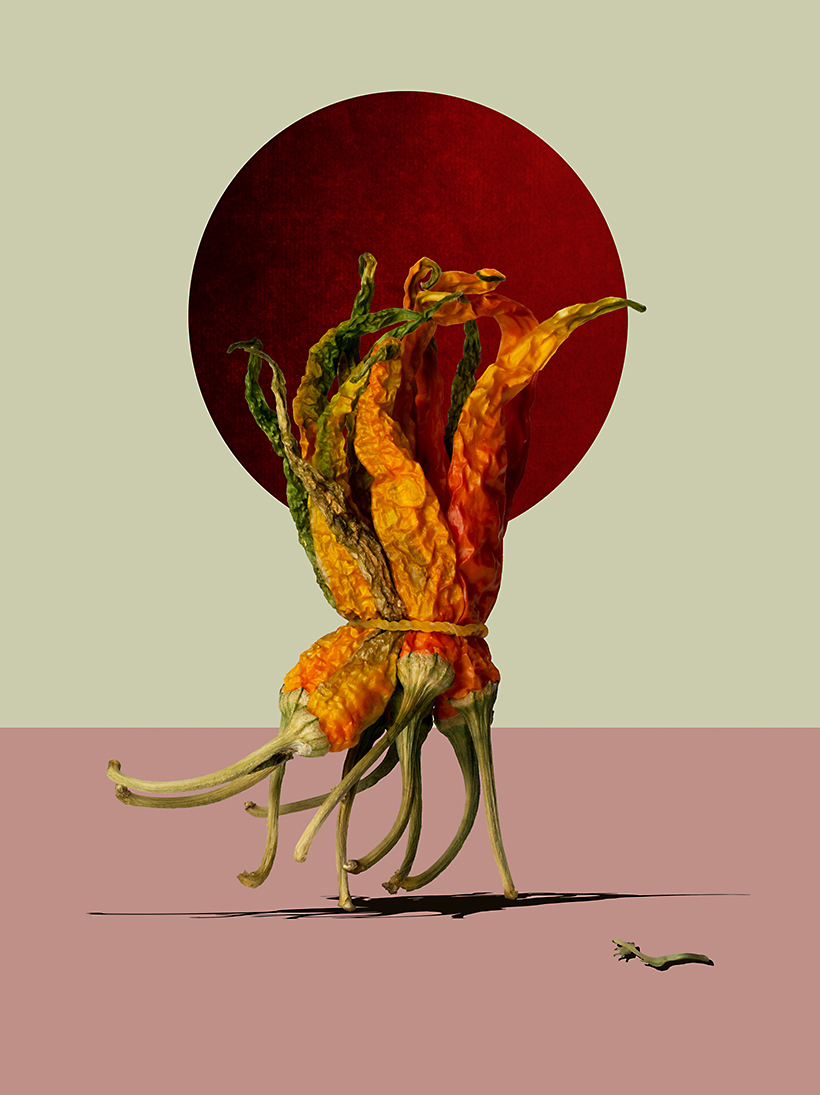In the spirit of celebrating creativity, we ask talented individuals around the globe to fill our q&a on whats and hows of their creative process. This episode is dedicated to the artist and photographer, Shinya Masuda, who turns rotten food into meditation on transience.
How would you describe what you do?
“All things must pass” is a phrase I learned from my grandmother when I was a child. That phrase triggered and inspired me to start making images that use rotten food and organic matter as important motives. My work bridges the visible physical world and invisible spiritual world.
How did you get started?
One day, I unintentionally spoiled a box of fruits and vegetables that my mother had sent from my hometown, without even taking them out of the box. I stared down at the veggies lying in the box, which now became their coffin. The sight pained me, but at the same time, it reminded me of my late grandmother’s pet phrase, “all things must pass.”
Once their time in this world has passed, all life loses their form. That’s only natural. While recognizing that providence, I also yearned to capture the remnants of love that my mother must have sent along with those items. The veggies’ value as foodstuffs may be lost, but a piece of my mother’s heart must linger still. Before even that vanished, I wanted to embalm those rotten foods for a proper send off.
I chose Hanafuda as a motif for the last rites.

via www.shinyamasuda.com
Hanafuda, or flower cards, is a traditional Japanese card game consisting of a deck of 48 cards, which are divided into 12 suits of 4 cards each. Each suit represents a month of the year with a flower or a plant of that month. In most suits, two of the cards show a plain version of the flower or the plant, while one of them in most suits depicts a tanzaku, or a poetry ribbon, along with the flower. The top card features the flower along with an animal, a bird, or the moon.
The combination of the cards such as “a drink over cherry blossom” expresses some of the Japanese heritage of enjoying ephemeral beauty particular to that month or the season.
The grandmother who taught me the concept of impermanence also taught me how to play the game of Hanafuda.
The seasonal foodstuffs from my mother will depart, dressed in motifs from Hanafuda I played with my grandmother. I remain in this world to capture the moment when my mother’s love transforms from “a matter of love” to “a record of love.”
A strength or skill you value most:
A product of chance.
A coincidence that happens very rarely. An event beyond human knowledge. It is neither scientific nor religious, much less spiritual. If anything, it is an intuitive power that calls to me from a deep psychological place that lies deep within me.
One of your favourite projects you’ve worked on:
My masterpiece “HANAFUDA SHOUZOKU” is the work that led me to exhibit in many countries, including London, Paris, Athens, the United States, Germany, Italy, Israel, and Malaysia. It has also received numerous awards.

